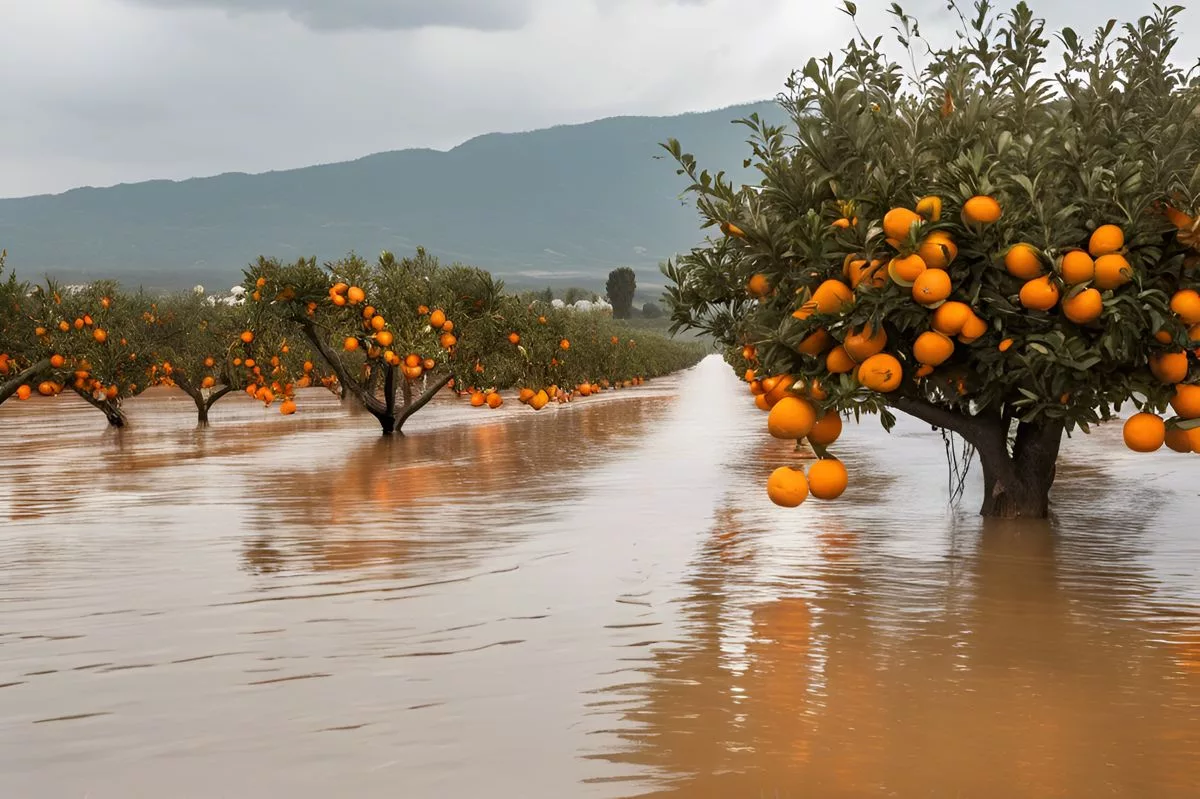The town of Citrusdal in the Western Cape, known for its top-tier citrus fruits, has been hit hard by severe weather causing the recurrent destruction of road access, plunging the town into isolation. The floods have caused significant financial implications, with citrus growers incurring damages surpassing R430 million the previous year. The town is currently holding its breath in anticipation of aid and restoration of road connectivity, as the citrus industry forms the community’s backbone and is a significant driver of employment and economic growth in the area.
Mother Nature’s recent severe weather in Citrusdal has caused the recurrent destruction of road access, plunging the town into isolation. The floods have caused significant financial implications, with citrus growers in the valley incurring damages surpassing R430 million the previous year. The town is currently holding its breath in anticipation of aid and restoration of road connectivity, as the citrus industry forms the community’s backbone and is a significant driver of employment and economic growth in the area.
The Western Cape’s tranquility is a testament to the stunning serenity and verdant landscapes it offers, hiding the rising turbulence in its citrus production hub. Citrusdal, a modest still pivotal town, is celebrated for its top-tier citrus fruits and by-products. This town occupies the third rank among South Africa’s citrus producing regions and accounts for an impressive 14% of the country’s total citrus yield, making it a substantial contributor to the nation’s agricultural economy.
Mother Nature’s Fury Unleashes Havoc on Citrusdal
The town’s formerly peaceful existence has recently been disrupted by the wrath of Mother Nature. The Southern Africa Citrus Growers’ Association (CGA) has expressed grave concerns over the possible detrimental effects of flooding on Citrusdal’s citrus production. Continual bouts of severe weather have caused the recurrent destruction of road access to Citrusdal, plunging the town into isolation. Cederberg’s Mayor, Ruben Richards, provides a somber portrayal of the circumstances, emphasizing a colossal chasm in the road, which started as a 20-30 meter gap, now expanding to approximately 60 meters.
The Town’s Response and the Financial Impact of the Floods
The beleaguered town is currently holding its breath in anticipation as all three of its entry roads have been blocked. Despite this, the town’s spirit of resilience shines through an alternate private farm road that has been used for emergency access. Basic necessities such as groceries, medicines, and fuel are being transported into the town, while a soup kitchen ensures daily provision of 1,000 meals.
The aftermath of the floods goes beyond physical damage; it has significant financial implications. Gerrit van der Merwe, CGA’s chairperson, revealed that citrus growers in the valley incurred damages surpassing R430 million the previous year. The current year’s floods are predicted to result in even greater losses. This is a troubling trend, as it marks the second major flood in two years and the third instance of the town being isolated from the rest of the province due to flood damage.
Calls for Aid and the Urgency of Restoring Road Connectivity
In response to the escalating crisis, the CGA has welcomed the provincial disaster declaration and urged Agriculture MEC Ivan Meyer to assist Citrusdal’s farming communities. The CGA’s appeal is for immediate and effective access to funding and support, prioritizing those hit hardest–the citrus growers and farm workers of Citrusdal. After all, the citrus industry forms the community’s backbone and is a significant driver of employment and economic growth in the area.
Despite a private bridge providing temporary relief as an emergency route, issues of liability, traffic management, and potential infrastructure deterioration must be addressed before the bridge can be deemed safe for public use. The urgency to restore road connectivity is high as Citrusdal is in the midst of its export season. The floods have unfortunately clashed with the season’s peak, causing a substantial disruption in the transportation of a large quantity of oranges to Cape Town’s port.
The Need for Robust Infrastructure and Emergency Management Systems
The citrus industry’s immense contribution to the Western Cape economy is undeniable. Each year, over 20 million 15kg cartons of citrus are exported from Western Cape orchards to overseas markets. Yet, the increasing frequency of extreme weather events highlights the urgent need for durable infrastructure and efficient emergency management systems capable of handling high water levels.
Jannie Strydom, CEO of Agri SA Western Cape, echoes these sentiments, emphasizing the need to comprehend the underlying cause of the situation and devise solutions to prevent future disasters. It’s evident that Citrusdal and its dedicated citrus growers face a challenging road ahead. However, armed with resilience, resourcefulness, and the community’s unwavering spirit, they are equipped to brave the storm and continue contributing to the country’s citrus yield. The ongoing narrative of Citrusdal serves as a testament to the determination and perseverance of humans in the face of adversity.
What is Citrusdal known for?
Citrusdal is known for its top-tier citrus fruits and by-products, occupying the third rank among South Africa’s citrus producing regions and accounting for 14% of the country’s total citrus yield.
What has disrupted Citrusdal’s peaceful existence?
Mother Nature’s recent severe weather, causing the recurrent destruction of road access to Citrusdal, plunging the town into isolation.
What is the financial impact of the floods in Citrusdal?
Citrus growers in the valley incurred damages surpassing R430 million the previous year, with the current year’s floods predicted to result in even greater losses.
What is the urgency to restore road connectivity in Citrusdal?
Citrusdal is in the midst of its export season, and the floods have clashed with the season’s peak, causing a substantial disruption in the transportation of a large quantity of oranges to Cape Town’s port.
What is the need for robust infrastructure and emergency management systems in Citrusdal?
The increasing frequency of extreme weather events highlights the urgent need for durable infrastructure and efficient emergency management systems capable of handling high water levels.
What is the citrus industry’s contribution to the Western Cape economy?
Each year, over 20 million 15kg cartons of citrus are exported from Western Cape orchards to overseas markets, making the citrus industry a significant driver of employment and economic growth in the area.












